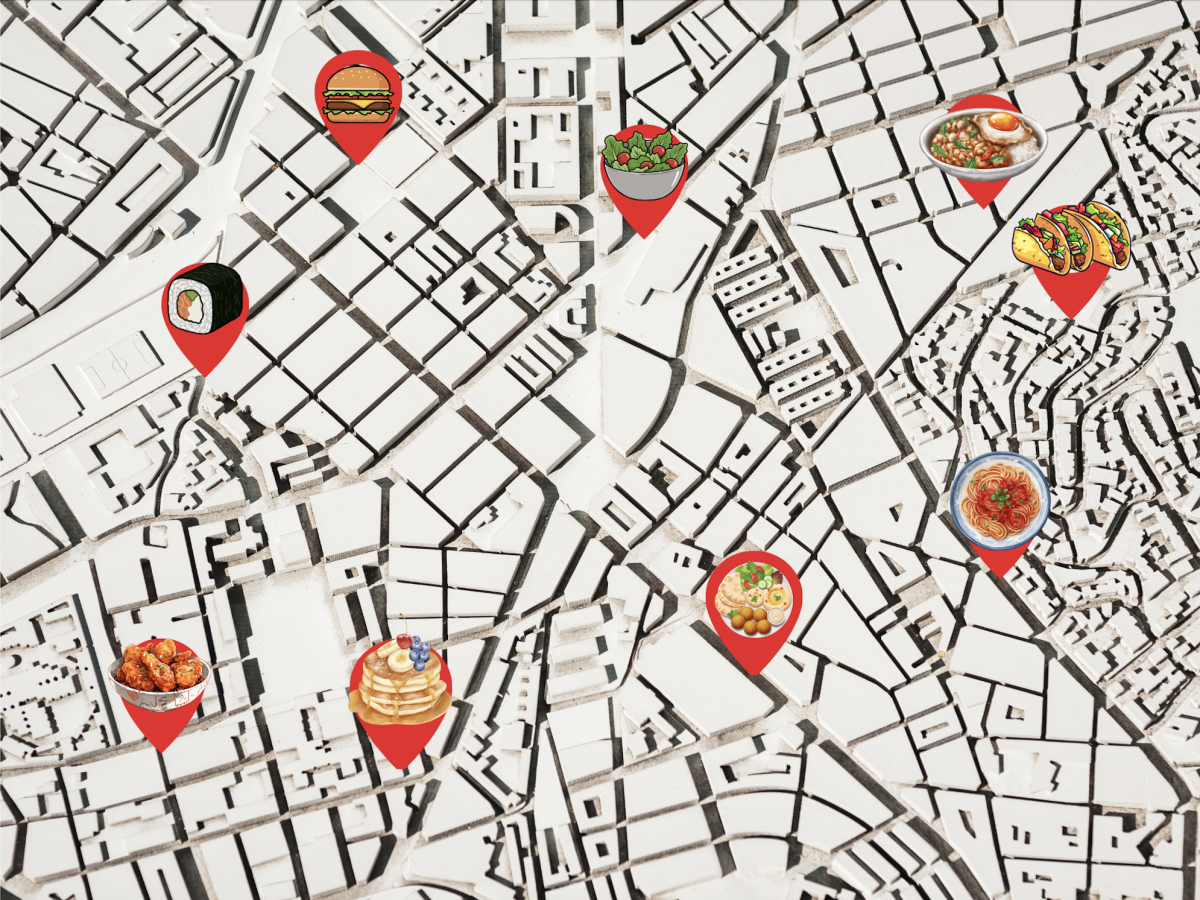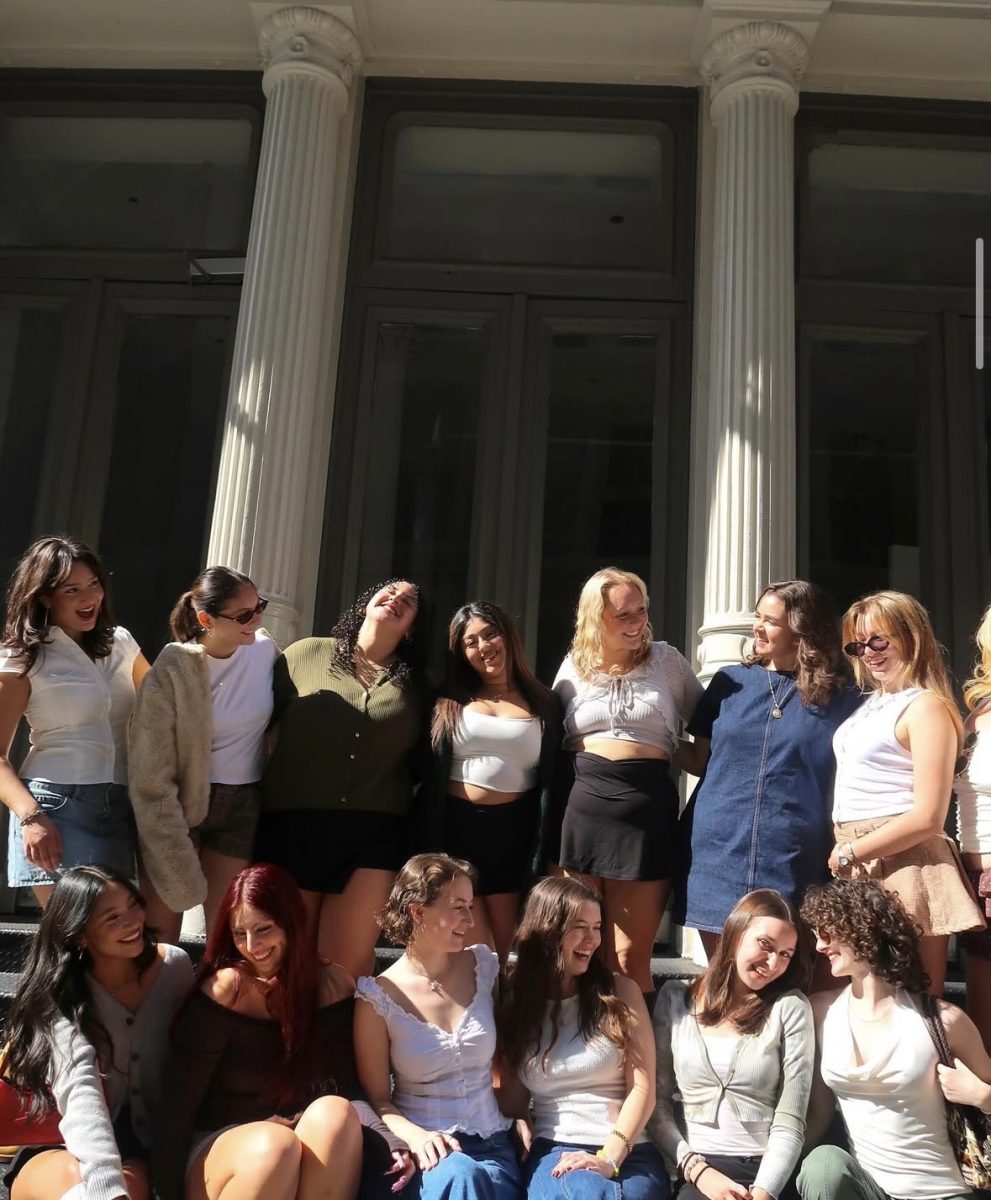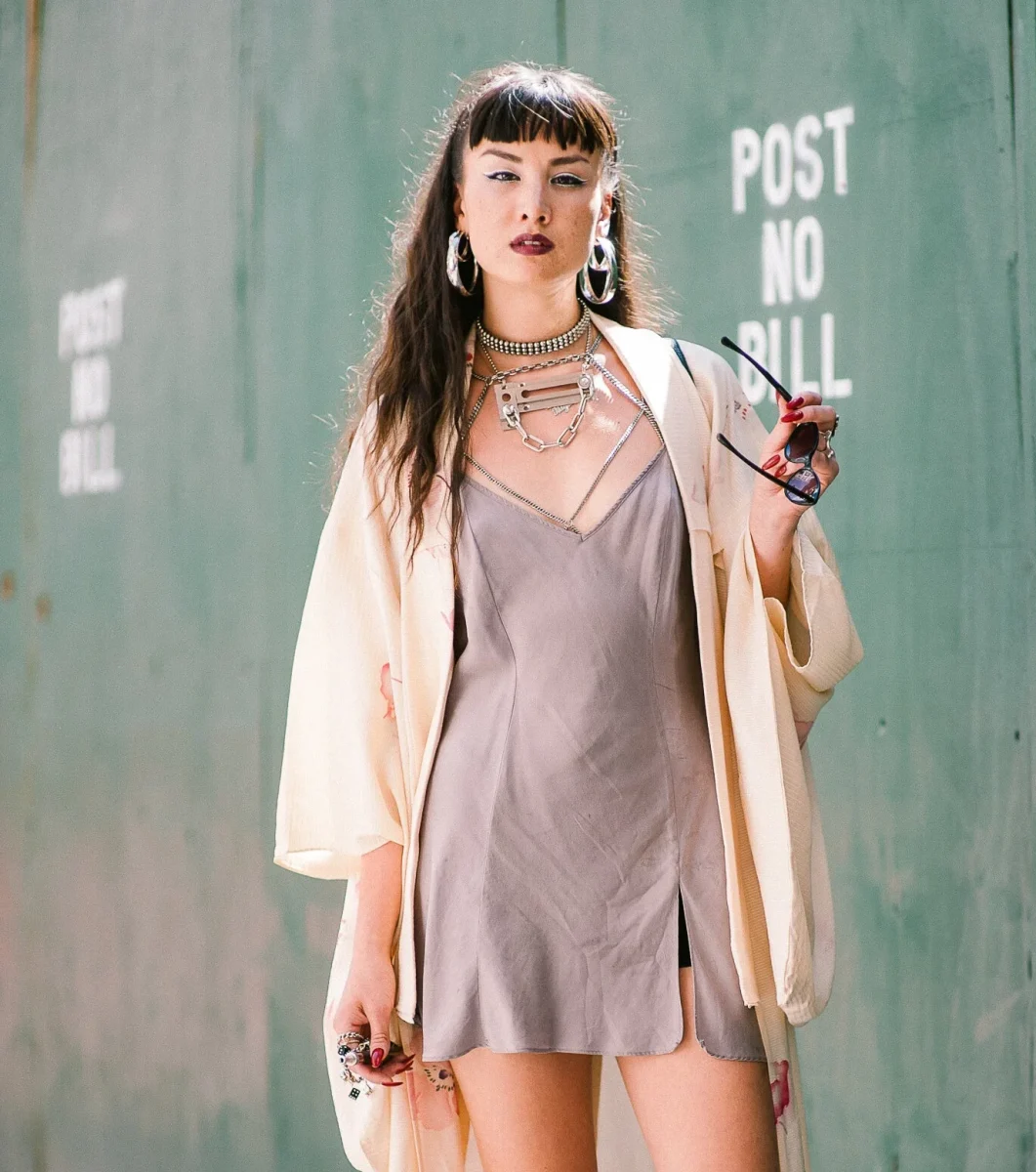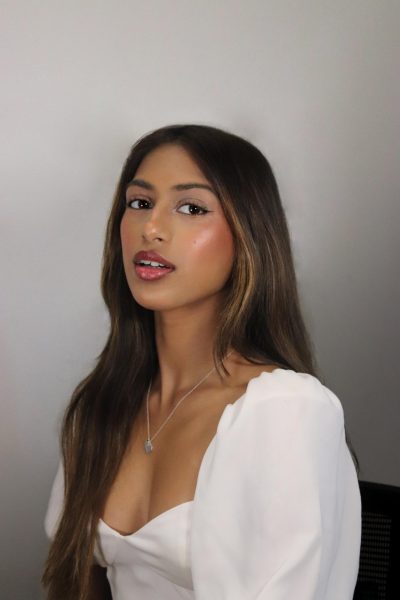Thursday, Nov. 14, P.A.C.E. Board hosted their annual “BEHIND THE SCENES” event in the Student Center with guests Dr. Nura Mowzoon and Penn Badgley to present “Can We Talk?,” a series primarily surrounding the intersection between media and the youth, specifically within relationships. Dr. Nura Mowzoon has a doctoral degree in marriage and family therapy from Nova Southeastern University and now teaches at Arizona State University while traveling to colleges across the country to host “Can We Talk?”.
Penn Badgley, who is widely known for his acting roles as Dan Humphrey in The CW’s “Gossip Girl” and Joe Goldberg in Netflix’s “You,” has an industry-level understanding of the way the media contributes to the paradigm of unrealistic yet idyllic versions of intimate relationships. While the pair’s collaboration was beginning to reveal overlaps between their own experiences, Badgley and Dr. Mowzoon sought to take “Can We Talk?” on the road to university students as a way to target the age demographic most susceptible to these preconceived notions. The University had over 270 students in attendance, with many reserving tickets online and others waiting in the standby line, hoping to see the conversation occur.
Ava Oteiza, a senior in Arts & Entertainment Management and the marketing director of P.A.C.E. Board, introduced both guests to kick off the evening, where they were met with a room full of university students applauding and cheering for the duo. Badgley initiated the conversation by explaining to the crowd that the purpose of the panel was to “discuss the importance of unity within relationships,” to which Dr. Mowzoon brought up the timely relevance of this as she said, “Penn [Badgley] and I’s focus is on how to navigate difficult and meaningful conversations during polarizing times.” The two directed much of their focus towards the media being “largely to blame for the divisiveness we are experiencing right now,” which seemed to garner nods in the crowd as it resonated with many.
Badgley and Dr. Mowzoon displayed slides with statements and questions to guide the conversation during the event, beginning with “Our belief: social changes happen when we learn how to have meaningful conversations with one another.” Badgley joked that the everyday phrase “How are you?” has “developed into a personal question that we’re afraid to answer.” He then pivoted the conversation into the necessity of creating broad social change from an individual perspective, encouraging the audience to “spend time on how to make personal change…you cannot control others’ behavior, you will find this out as you go through deeper relationships.”
Dr. Mowzoon supports this with a research-backed focus, citing author Mark Karlberg as she states that “one of the biggest financial markers in media is a film going international, but the drawback is you cannot introduce complexity and have it translate the same across cultures, so it eventually gets simplified by reverting to us versus they.” This line of reasoning becomes further emphasized as the duo allude to an example of the Marvel Cinematic Universe (MCU) where “everything is resolved with a fight” expresses Badgley, to which Dr. Mowzoon quips “well, also, [so does] our world.”
On a similar topic of division, Dr. Mowzoon points out how identifying a villain often makes us feel like the hero and that, ultimately, “division is easier than compassion and responding aggressively towards injustice can become chemically addictive” due to reward centers in the brain becoming filled with dopamine when you tell people how “awful they are.” She allows this to sit with the audience, perhaps to consider their own online interactions. Instances of this are most commonplace on the internet, particularly considering that many social media algorithms now push hate comments to the top, where they are most likely to be seen and engaged.
For the final moments of the night, students in the audience were given the opportunity to ask Dr. Mowzoon and Badgley about the topics discussed throughout the evening. Sammi Denney, a junior in FTVC, spoke to Badgley about her epiphany through playing bully-centric characters and said that those people “tend to have a goodness to them,” but it takes a while to wade through. When prompted by Dr. Mowzoon with the question, “What do you think gets in the way of having meaningful conversations?” another student relayed, “It is easier to overall avoid those conversations because then you don’t have to put in the effort to make them understand you” which amassed agreement from the room.
As the event came to a close, Dr. Mowzoon and Badgley teased students about the possibility of returning to the University, leaving the crowd in good graces. Sydney Haridal, a senior Criminal Justice and English major, shared that while she had originally attended because she loved Badgley in “Gossip Girl” and “You,” the event’s substance felt “really informative. As someone who has trouble navigating relationships, I took a lot away from it, and it gave me a different perspective.” Delphine Tang, a P.A.C.E. Board volunteer and senior in Communications & Media Studies, also disclosed that “I originally went in assuming it would become a relationship advice session, but I found it even more insightful given the hosts’ backgrounds in their respective fields, and what they had to offer felt really inclusive.”
Senior Film & Media Studies and Communications major Maggie Keller, who serves as P.A.C.E. Board’s President, told The Pace Press, “The event went so well! We had an amazing turnout, even with standby attendees. Everyone was super respectful and engaging in the conversation which was so amazing to watch. We didn’t know how ‘Can We Talk?’ was going to go over with students since it was something so different than what we’ve done before. We usually do interviews, so a guided conversation was new to us, and it blew our expectations out of the water. Penn [Badgley] and Dr. Nura Mowzoon were the sweetest to everyone; they came in with such amazing energy, and everyone was really pleased with how it all went!”








